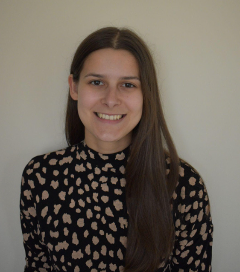Throughout my studies, I naturally gravitated towards statistics. However, I had no clear career vision until I attended a talk at my university where individuals from a plethora of companies presented their careers. It was here where my interest in medical statistics sparked, since this career combined my passion for statistics with my drive to positively impact individuals’ lives and consequently, I believed it was an industry I could thrive in. This led me to complete my placement year at Abbott Diabetes Care, working as a research and development (R&D) statistician placement student for 13 months.
My placement began with a four week handover period with the previous students. During this time, I learnt the basics of the statistical software SAS to be able to complete the several frequent in-house test analyses. This analysis formed an integral part of my placement, completing requests daily, but it wasn’t all that I did. As my confidence grew so did my responsibilities and I found myself as the secondary contact of an R&D science team, where I regularly provided investigational analysis which involved handling large amounts of data. However, I was not restricted to just one science team and therefore broadly provided analysis for all the different analyte projects at Abbott, including investigational work into whether a current model is suitable for new sensors.
Throughout my year I also trained both permanent and new employees, with a range of statistical abilities, on how to use the several codes needed to complete the in-house test analysis. These mentorship roles, coupled with juggling deadlines and priorities led to my time management and organisational skills being enhanced. My communication skills also saw huge development as I found myself conversing with a range of colleagues. For example, I collaborated daily with the other R&D statistician placement students to debug code while offering and asking for help when required. I also felt comfortable conversing with more senior members of the department when presenting statistical results in meetings. My role also saw me working closely with the R&D scientists, since it was often their data I was analysing. Considering I had no SAS experience prior to my placement, the skill I have most improved is undoubtably my competency in manipulating large SAS scripts.
I would recommend completing a placement year. Not only do you gain industry contacts, but you also gain knowledge and experience that you otherwise wouldn’t have as a university student, which is invaluable when applying for future roles. My advice for anyone thinking of doing a placement would be to not get disheartened if you don’t have success with the first role you apply for; I didn’t. However, I couldn’t have asked for more from my placement with Abbott. Whilst you should aim to take every opportunity to develop, know that your colleagues are there to help you. If you are finding a task challenging or the workload overwhelming, just talk to your line manager; I felt completely supported at Abbott.
On my placement I found confidence and self-belief that I didn’t find at university. On completion of my undergraduate degree, I am undecided whether to undertake a Master’s in medical statistics or go into employment. Despite this, my placement has solidified my interest in medical statistics and after graduating I would like to pursue a statistician role in a medical company, to help better the lives of individuals.


